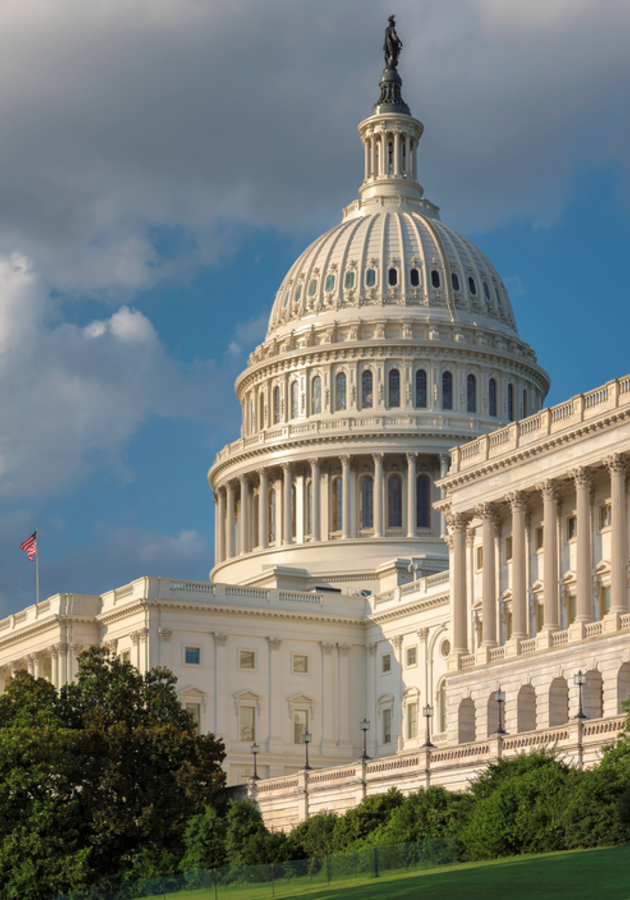At the beginning of 2020, veteran U.S. diplomat John Bolton – the 25th U.S. ambassador to the United Nations, and Trump’s national security advisor from April 2018 to September 2019 – announced the publication of an explosive Trump tell-all book. Six months later, in an attempt to block the release, the Trump administration filed a lawsuit against Bolton, contending that his forthcoming book endangered national security and that, by writing it, Bolton had breached nondisclosure agreements he had signed as a condition of his White House employment. Not long after, a federal judge denied this request, so on June 23, 2020, “The Room Where It Happened” hit the shelves of bookstores and online retailers across the United States.
An account of Bolton’s 17 months as Trump’s national security advisor, “The Room Where It Happened” is not so much a White House memoir (as the book’s subtitle suggests) as it is a meticulously detailed record of Trump’s “erratic diplomacy,” allegedly driven entirely by personal interests and reelection calculations. Get ready to find out more!
Chaos as a way of life
During the 1980 presidential transition, Ronald Reagan was so intently focused on picking people who would adhere to his platform that the famous maxim “personnel is policy” was born shortly thereafter. According to John Bolton, Donald Trump’s 2016–2017 transition gave those three words entirely new meaning, because Trump’s policy was, well, Trump himself. In other words, as far as Trump was concerned, picking people who would adhere to his platform was tantamount to picking people who would say “yes” to anything he said.
It wasn’t always like that. In the first year or so, while “held in check by an ‘axis of adults,’” Trump was hesitant to act. Unfortunately, as time passed, that axis of adults departed, so Trump became more certain of himself and everything fell apart. Just a brief catalogue of names should suffice: Michael Flynn, Sean Spicer, Rob Porter, Anthony Scaramucci, Steve Bannon, Reince Priebus. They all came, saw, and either left or were let go – sometimes in the span of just a few days!
Flynn was Trump’s national security advisor – the 25th man to hold that position in the history of the United States – for a little more than three short weeks. After his resignation on February 13, 2017, Trump interviewed three candidates for the position: Lieutenant General H. R. McMaster, Lieutenant General Robert Caslen, Commandant of West Point, and John Bolton. It was McMaster who eventually got the job, but Trump was taken with Bolton as well. He especially liked the fact that Bolton, like him, was controversial: either loved or hated by other people.
So, when McMaster resigned as national security advisor on March 22, 2018, Bolton was widely touted as his inevitable replacement. Trump confirmed the speculations with a tweet in which he thanked McMaster and welcomed Bolton to his team. There were some things Bolton didn’t like about Trump even then – especially Trump’s somewhat lenient stance toward North Korea – but, even so, Bolton was quite happy to become a part of his administration. After all, the two held similar contempt toward the left-wing media and “the High-Minded” and agreed on many aspects of U.S. foreign policy, ranging from the “unsigning” of the Paris Climate Agreement to the withdrawal from the Iran Nuclear Deal. In fact, the latter was one of the first things Trump did after Bolton began his position as national security advisor on April 9, 2019.
Venezuela: occupied, free and American
It was just a few months into his tenure that Bolton started having his first doubts about Trump and his real intentions. What alarmed him the most wasn’t the President’s glaring lack of knowledge about matters of geography and foreign policy, but his penchant, as Bolton writes, to, “in effect, give personal favors to dictators he liked.”
A self-proclaimed American nationalist and a well-known foreign policy hawk, Bolton was an advocate of the Iraq War and has supported, for many years, regime changes in Venezuela, Cuba, North Korea, Iran, Yemen, Syria, and Libya. If we are to believe his words, Trump cared much less about the people in these countries than about his own reappointment. “In fact,” writes Bolton, “I am hard-pressed to identify any significant Trump decision during my tenure that wasn’t driven by reelection calculations.”
Let’s start with Venezuela. As is well known, the country’s 2013 close presidential election was widely disputed and led to widespread protests which triggered a nationwide crisis. For Bolton, the crisis presented the Trump Administration with an opportunity to put an end to Venezuela’s left-wing regime, which he described as both illegitimate and “one of the Western Hemisphere’s most oppressive.” Unfortunately, he bemoans, Trump was never confident of success and failed to give support to the Venezuelan opposition’s efforts to replace Nicolas Maduro, Hugo Chavez’s heir.
Instead, Trump was in favor of a military intervention, even when one was unnecessary. In August 2017, responding to a press question at Bedminster, New Jersey, he said that he was not going to rule out “a military option” for Venezuela. In fact, Bolton claims, that was always his only option, because overthrowing Maduro by merely siding with Venezuela’s opposition wouldn’t win him as many votes back at home. That’s why, according to White House Chief of Staff John Kelly, as quoted by Bolton, Trump felt “it would be ‘cool’ to invade Venezuela,” not caring one bit about the American soldiers that might die accomplishing the objective.
When Juan Guaidó challenged Maduro’s presidency in January 2019 and declared himself interim president until free elections could be held, Bolton tried to persuade Trump to endorse him immediately. Trump, however, “vacillated and wobbled,” doubting that Maduro would ever fall and saying he was just “too smart and too tough.” Even then, Trump continued insisting he wanted military options for Venezuela with the final goal of keeping it because, in his words, “it’s really part of the United States.”
Egregious errors and pointless precedents
Thinking that Venezuela was part of the United States wasn’t Trump’s only egregious geographical error. Once, he refused to have a talk with Russia’s president Vladimir Putin in Helsinki, believing that Finland was “kind of a satellite of Russia.” Bolton tried explaining the history to him, but he didn’t get that far. Maybe if he had, Trump wouldn’t have asked Kelly later that same morning if Finland was actually a part of Russia. Another time, during a visit to London, after British diplomat Mark Sedwill described “Russia’s hit job on the Skripals” as “a chemical-weapons attack on a nuclear power, Trump asked Sedwill, “Oh, are you a nuclear power?” Bolton claims that Trump wasn’t joking: he just didn’t know.
And he didn’t even bother learning. Intelligence briefings, in Bolton’s opinion, were never terribly useful with him, “since much of the time was spent listening to Trump, rather than Trump listening to the briefers.” Moreover, he was interested in doing “historic” things, irrespective of their meaning or actual effect. That’s why he insisted on visiting North Korea, regardless of the lack of invitation. He just wanted to be written down in history as the first American president to visit this famously isolated communist country.
During the 2018 NATO summit, Trump’s fondness for meaningless historic precedents inspired him to the idea of having the United States leave NATO, if some of its members signed a pipeline deal with Russia. “We have great respect for NATO, but we’re being treated unfairly,” he supposedly said to Bolton. “By January 1, all nations must commit to 2%, and we will forgive arrears, or we will walk out, and not defend those who have not.” During the 2019 G7 summit in Biarritz, Trump supposedly set his sights on another first: a diplomatic channel with Iran. Bolton prides himself on coordinating extensively with Secretary of State Mike Pompeo and Israeli Prime Minister Benjamin Netanyahu in a successful attempt to sabotage mediation efforts by French President Emmanuel Macron and to prevent, at all costs, a meeting between Trump and Iran’s Foreign Minister Mohammad Javad Zarif.
The aid for Ukraine and the case of Turkey’s Halkbank
It is the president’s constitutional obligation to “take care that the laws be faithfully executed.” In Bolton’s view, Trump repeatedly misused “the national government’s legitimate powers by defining his own personal interest as synonymous with the national interest, or by inventing pretexts to mask the pursuit of personal interest under the guise of national interest.” Yes, Bolton claims that withholding aid to Ukraine in exchange for an investigation into Joe and Hunter Biden wasn’t the only time Trump was guilty of “confusion of personal interests,” but was, instead, just one episode of a “broader pattern of behavior.”
According to Bolton, he, Pompeo and Defense Secretary Mark T. Esper tried numerous times to persuade the president to release the aid for Ukraine. However, Trump refused and once, on August 20, even said to him that “he wasn’t in favor of sending anything [to Ukraine] until all the Russia-investigation materials related to Clinton and Biden had been turned over.” This was “one of the many straws” that contributed to Bolton’s eventual departure from Trump's administration. The others convinced him that for Trump, “obstruction of justice [was] a way of life.”
For example, Trump once promised Turkish President Recep Tayyip Erdoğan – whom Bolton describes as “a radical Islamicist […] busy transforming Turkey from Kemal Ataturk’s secular state into an Islamicist state” – to “take care” of an investigation against Halkbank, the largest state-owned bank in Turkey. The bank was accused by American attorney Geoffrey Berman of evading U.S. sanctions on Iran and laundering up to $20 billion on behalf of Iranian entities. Coincidentally or not, shortly after Erdoğan lobbied Trump to crush the investigation, Attorney General Matthew G. Whitaker refused Berman's request to file criminal charges against the bank. In a discussion with Bolton, Trump declared he believed Halkbank was “totally innocent of violating U.S. Iran sanctions.”
China, China, China…
In addition to Halkbank, another big company accused (and successfully prosecuted by the Justice department) for committing “massive violations” of Iran and North Korea sanctions was ZTE, a Chinese telecom company. As a result, in April 2018, the Department of Commerce banned American companies from providing exports for ZTE. But just two months later, Trump reversed the ban and agreed to a billion-dollar fine, giving ZTE “not just a reprieve but a new lease on life.” At about the same time, Trump announced that he would ease sanctions on yet another Chinese tech giant, Huawei, thereby effectively reversing Secretary Wilbur Ross’ decision as soon as it was made. Fortunately, this was all re-reversed by Bolton and his associates in the administration.
Nevertheless, it was lenience such as this that made China’s President Xi Jinping say, on one occasion, that he would want to work with Trump for “six more years,” to which Trump replied that “the two-term constitutional limit on presidents should be repealed for him.” Soon after, Trump turned the conversation to the upcoming U.S. presidential election, asking Jinping to help him win it by buying more soybean and wheat from U.S. farmers and, thereby, gaining important votes for him among a vital demographic.
Moreover, on several occasions, Trump explicitly refused to criticize China’s human rights violations, going so far to encourage Xi into building reeducation concentration camps for the Muslim Uyghur population, which he thought was “exactly the right thing to do.” During the 2019-20 Hong Kong protests, he did not want to get involved in the matter at all, saying to Bolton, “We have human-rights problems too.” Finally, he refused to give any public statement to mark the 1989 Tiananmen Square Incident, dismissing it as something irrelevant in the midst of the trade war with China. “That was 15 years ago,” he said to Bolton, inaccurately. “Who cares about it? I’m trying to make a deal. I don’t want anything.”
Final notes
A damning portrait of Donald Trump as a reckless leader who used his office to advance his own personal interests, “The Room Where It Happened” seems to ask more questions than it answers. The most pressing one being, “If he knew all this, why didn’t John Bolton testify in Trump’s impeachment inquiry?” The book does not leave this question unanswered.
Blaming the Democratic-controlled House of “impeachment malpractice,” Bolton writes, in the epilogue to the book, that they sacrificed “a comprehensive investigation” (which should have broadened their inquiry to include ZTE and Halkbank) for a swift vote, governed by their own political imperatives and nothing more.
In our opinion, “The Room Where It Happened” is sometimes guilty of the same crime. Strangely enough, however, in furthering his own interests and trying to present himself as “the good guy,” Bolton sometimes makes himself the villain of his own memoir, as one Foreign Policy magazine reviewer aptly noted in a critique. That, of course, makes Bolton’s portrait of Trump a little more three-dimensional than he would have probably wanted. But that’s never a bad thing, at the end of the day.
12min tip
The more we read books written by politicians, the less we trust them. Always be courageous to think with your own head.





























